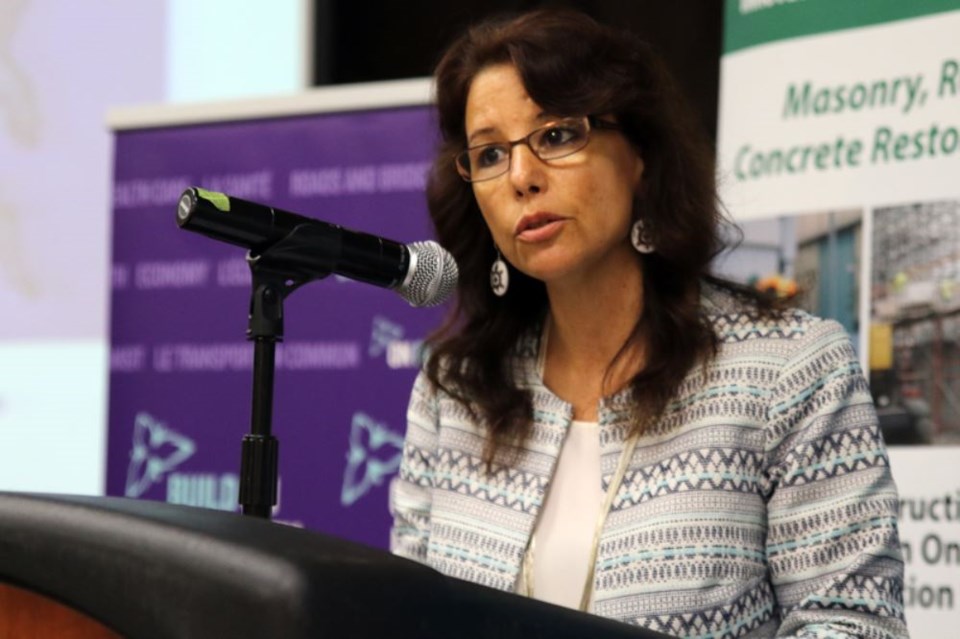THUNDER BAY -- The head of Lakehead University’s law school says consent provisions in the United Nations Declaration on the Rights of Indigenous Peoples “fundamentally changes everything."
Bora Laskin Faculty of Law dean Angelique EagleWoman spoke to the Aboriginal Partnership Exchange conference on Wednesday, detailing a millennium of Indigenous economics and their evolution in the centuries that followed European contact.
She explained settler economics eventually disrupted traditional trade routes and relationships across the Americas and imposed isolation on Indigenous communities. The move sidelined tribalist economics, which traditionally demanded a kinship basis for trade relationships and recognized interdependence with both ecosystems and inter-generational resources.
Indigenous economics has now become a right. Where Canada, Australia, New Zealand and the United States all refused to sign the UNDRIP when it was introduced in 2007, all have now committed to implementing it.
Canada dropped it’s “permanent objector” status to the declaration in May.
“We’ve had First Nations and Aboriginal communities devastated by many of the failed policies and misunderstandings of how to interact with native peoples in their homelands,” EagleWoman said.
“We’ve seen the British Empire -- where the sun never sets -- changing to understand that self-determination has to be the way forward internationally.”
The declaration enshrines economic self-determination, the right to strengthen economic institutions, the right to improvement of economic and social conditions, and the right to ownership and development over lands.
Most importantly for EagleWoman, it re-establishes the good faith assumed in the treaty relationships by ensuring all of those provisions be met with Indigenous consent.
“One of those key standards is free, prior and informed consent before any action is taken that impacts an Indigenous community -- and that fundamentally changes everything,” she said.
“It means no government gets to dictate. They must sit down at the table, they must discuss and then there must be consent. That’s a huge change. It goes beyond the duty to consult. It goes beyond accommodation. It’s consent.”
Beyond strengthening economies based on Indigenous principles in First Nations, EagleWoman believes Indigenous economic growth could have a social effect on the broader Canadian economy.
“There can be mining projects, there can be timber, there can be lots of resources. We’ve always utilized resources but the idea is, there are resources left and available for future generations,” she said.
“We’re not frozen-in-time environmentalists and we’re not the consumer-based ‘use it or lose it.’ We’re somewhere in the middle. I think those values have something to inform commercial relationships today.”
